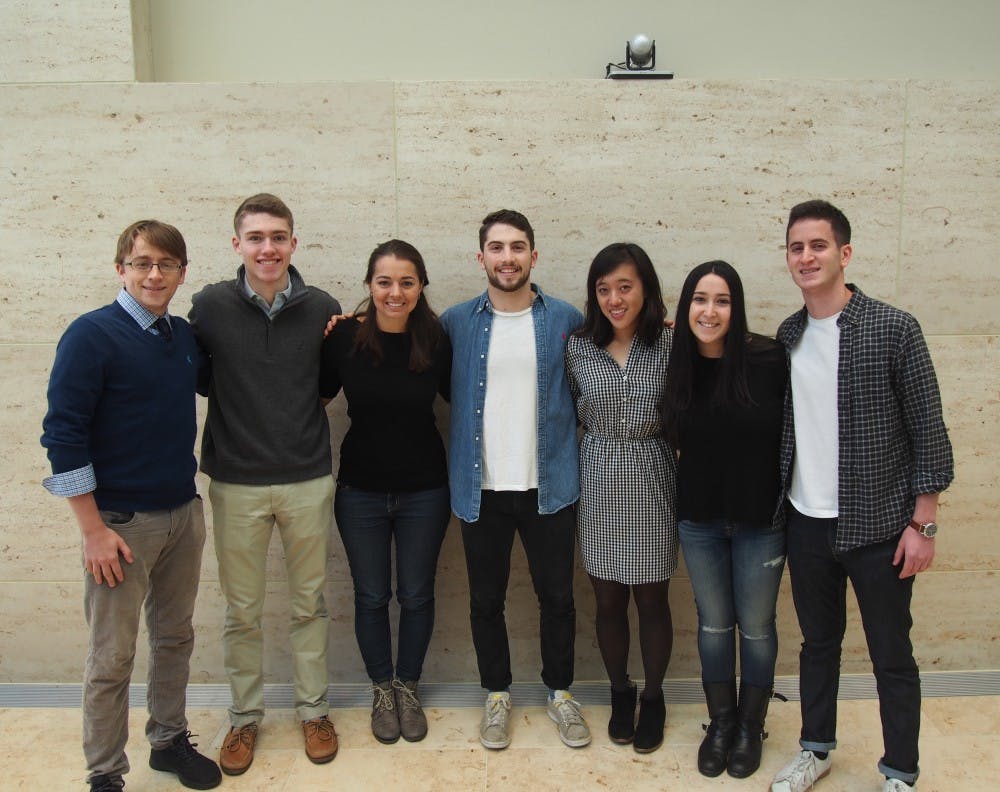We all have that friend who thinks they've come up with the next big start–up. Whether it’s an eco–friendly LED light–installation company, a new on–demand coding and scripting platform or an automatic queso–maker (Ed. note: Someone please invent that), the Weiss Tech House Innovation Fund ought to be their next stop.
Located inside the Engineering Quad, the Weiss Tech House is home to several umbrella committees. The Innovation Fund is one of them. A hub for all things entrepreneurial, the Innovation Fund is a program that funds young venture capitalists and supplies them with enough money to get their project off the ground. Once they select an applicant, the fund gives between $500 and $2,000 based on the specific company’s needs. The money, board member Jason Sheitz (C’18) explains, comes from outside. “So we were given a grant," he says. "Basically, it’s a donation overtime. We’re not really an investor," he says. "But we run our process as if we were an investor so as… to help our applicants and….portfolio companies, to make it feel real when they’re pitching to real funds.”Some of the money even comes from Innovation Fund alumni who are looking for a way to help out the next generation of young entrepreneurs.

But this is not to say that the fund takes the process lightly. For both sides (applicants and board members alike), it's imperative to treat this project as if the Innovation Fund were a "real" investor. The interview process is quite extensive, involving a written application, coffee chats and a number of interviews. Julia Taitz (C ’19) who is also on the board, explains, “We put such diligence into our decision process even though…we don’t have a stake in these. We are kind of fortunate enough to have that money and we are…hoping we start these companies off on the right start.” On the other side of things, the board members feel as if they benefit tremendously from making this experience as real as possible, and it gives them something as close to real–time investing experience as they could possibly get. Jason adds, “We understand that we are students as well and part of our experience is learning alongside them.”
Will Fry (pictured) is one of the lucky few that received the Innovation Fund’s grant. Now a senior in the College and in Wharton, Will started his company over the summer, and thanks to the grant, has seen tremendous success since its launch. Will and his business partner Jacob, who graduated last year, started a company called SolutionLoft. “We’re building an on–demand market place for software," Will says. "The problem that exists right now is say you want a software job, someone has to go and write it for you from scratch. But the odds are, for any software you want, someone’s already like created most of it in some for. It’s kind of like the printing press...before the printing press, you would have to manually re-write a book, and then they invented movable type, and you [could] just press the newspaper… and you’re able to reuse that so you can A) lower the cost a lot and B) lower the time to create software.”
Will came to the Innovation Fund when SolutionLoft was nothing more than a prototype.
“I think we had maybe one or two clients, but we hadn’t built out a website or platform," he says. "It was very early, essentially idea phase." The company has taken off since they received funding. “So now we’ve done around 15k in revenue, we have 60 percent profit margins—so we’re profitable which is exciting," Will says. "We worked with about 15 different companies, done around 40 different projects… We’ve grown a lot.” After graduation, Will plans to turn SolutionLoft into a full–time career, and looks forward to working on a more regular basis with Jacob.

Will’s scripting idea, however, is in no way typical of the fund; the group aids vastly different types of companies. Julia explains, “We really have a mix of people on board…we have people who are engineers, in Wharton, in the college, because [we] think it’s important that we have diversity of perspective."
The group also doesn't discriminate based on experience. The Innovation Fund targets people who are at the beginning stages of their projects, and really only look at the quality of the idea, rather than its success.
“A lot of people think entrepreneurism and think ‘Hey I’m not an engineer, I’m not in Wharton…I don’t have an idea,'” Julia says. But the Innovation Fund wants to stress that anyone can, and should, apply for funding. wants to make it a point that anyone can apply, and anyone can have a good idea. “We want to get those people who have a new idea…they’re kind of at that first bump…We don’t want them to hit these hurdles and stop," Julia explains.
The next step for the Fund: a total relaunch.The board is currently remaking the program altogether, focusing on making the fund more accessible and better known on campus. Looking forward, the group will start the relaunch with an event on Feb. 3 at Wu and Chen Auditorium. Going forward, the focus this semester will be on improving the experience of the students who go through the fund, and the group wants to focus on giving it a more personal touch. Jason adds, “We’d love to have help with hiring, or different workshops with industry people, so we’re really engaging our alumni founders. some of them have agreed to attend events, host office hours via video chat, the phone, or in person," he says. "We think we can add value, and for those places we can’t, we can connect them to people who can.”

